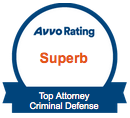Being arrested for a crime leaves a permanent record, regardless of whether or not a person is found guilty. Everyone has made mistakes, and sometimes those mistakes follow us throughout our lives. Some mistakes can majorly impact your life since employers, lenders, and rental agents may all do a background check when making their decisions. Not only that, but we currently live in an age of the internet, which makes your past easily accessible to anyone who cares to look it up.
Criminal Record Expunctions in Texas

Having your criminal record expunged can prevent law enforcement agencies from releasing information about criminal accusations. Criminal records that are commonly expunged in Texas include the following:
- A criminal charge that ended up being dismissed.
- An arrest for a crime for which you were never charged.
- Certain misdemeanor offenses for a juvenile.
- A criminal conviction that was later pardoned by the U.S. President or the Governor of Texas.
- A conviction for failure to attend school.
- A criminal conviction that was later acquitted by the Court of Criminal Appeals or the trial court.
- An arrest in which the person was never charged due to the case not being filed and no felony arose from the same transaction of the person initially arrested.
- An arrest in which the person was never formally charged, regardless of whether the statute of limitations has expired or not, and the prosecuting attorney’s office can certify that the records won’t be needed in any future criminal investigation of another person.
- An arrest or charge due to identity theft and another person was arrested for the crime and charged or convicted.
If you have one of the above on your criminal record and are ready to move on with your life, it’s time to consult a Texas expunction and non-disclosure attorney. At the Case J. Darwin Law Firm, you can speak with a lawyer who specializes in this practice area and can help you get your record expunged.
Expunction After Acquittal
If you’ve been arrested for an offense, you may be entitled to have the records expunged if you were convicted and then acquitted or pardoned. This doesn’t apply if someone was charged with another offense and convicted for something that occurred during the same episode. A criminal episode is a series of two or more offenses that happened during the same transaction, constitute a scheme or plan, or are connected or repeated offenses.
Juvenile Offenses
In many instances, a crime in which a person is charged before age 17 will be eligible to be expunged. This includes misdemeanors, failure to attend school, or offenses under the Alcoholic Beverage Code. These expunctions still have specific procedures and criteria that must be met. For example, a person will be denied an expunction before they reach a certain age, and they may not have multiple convictions for the same crime.
How Can an Attorney Help?
A criminal law attorney is skilled in the complex rules and regulations related to expungement and non-disclosure petitions. They can guide you through the process and make sure that you’re eligible to have your criminal history removed. Several steps must be followed closely for an expunction even to be considered by the court system, and professionals, such as the Case J. Darwin Law Office, can help.
Applying For and Obtaining an Expunction
The first step in applying for an expunction is to file a petition for expunction in your court district. Errors in following procedure with these documents can have dire consequences, so it’s often best to seek legal assistance. The petition must be completed and filed with accurate information in the proper court, including county, district, or municipal court. After the petition is filed, a hearing will be scheduled, and if the requirements are met, you’ll be granted your expunction.
What’s a Petition for Non-Disclosure?
A petition for non-disclosure can be filed if an expunction isn’t an option due to the nature of the charge, offense, or conviction. Non-disclosure doesn’t remove all records of the offense entirely, but it does limit access to the records. Documents subject to non-disclosure will be removed from public record and can’t be released to certain private parties. The records will, however, remain available to government agencies and can be used in certain court actions.
Under Texas Code §411.081, someone who has completed a deferred adjudication and has received a discharge and dismissal is eligible to apply for a non-disclosure order. Other specific criteria must be met as well, including the following:
- The statutory waiting period has passed, and during the waiting period, the person wasn’t convicted of any other offenses. Depending on the type of offense, the waiting period can be up to 10 years.
- Your offense will likely keep you from obtaining a non-disclosure order if it involves family violence or a sex offense that requires registration.
The process for obtaining a non-disclosure order is similar to an expunction. Help from an attorney can ensure you’re properly represented so that you have the best chance at changing your life-altering criminal record.
Obtaining an Expungement or a Non-Disclosure in San Marcos, Texas, or the Surrounding Areas
Obtaining an order to expunge your record or for non-disclosure can help you move on with your life. No person, agency, or system is perfect, and mistakes are made. The criminal justice system can be tough on offenders, but the law allows those mistakes to be remedied. When deserved, the court allows for second chances — an experienced criminal law attorney, such as Case. J. Darwin can help you get your life back.
Contact Case J. Darwin Law Office Today
If you have questions about expunging your record in Texas and want to discuss them further, contact Case J. Darwin Law Office today. Being accused of a crime can significantly impact your way of life, and by expunging your record, you can gain back some of your freedom and liberty. Call our office today at 512.738.6146 or submit our secure online form, and someone will reach out to you promptly.
Scales of Justice by North Charleston is licensed with CC BY-SA 2.0




